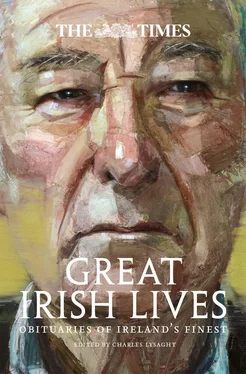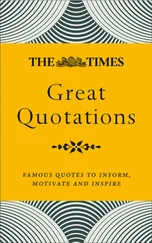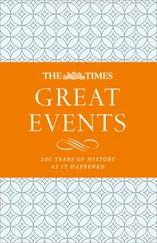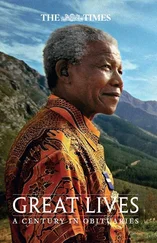During the few years which elapsed between 1800 and the death of Mr Pitt, two or three demonstrations were made in Dublin against the legislative union, in all of which Mr O’Connell continued to gain reputation as a popular leader; but he had not yet been recognized as the great agent of what was called “Catholic Emancipation.” For some time after the extinction of the Irish Parliament it was believed that the expectations excited by Mr Pitt respecting a repeal of the penal laws would be realized. But three successive Ministries occupied the Cabinet without possessing ability, or perhaps inclination, to effect that object when at length Mr Perceval was annnounced as the head of the Government amidst all the triumph of a grand No Popery agitation. Antecedently to this period, feeble efforts were occasionally made by the Roman Catholics, in which Mr O’Connell more or less participated, but it was not until the year 1809 that the struggles of that party became consolidated into a system and raised to the importance of a popular movement. The Orange party, of course, became alarmed; the measures of Government began to assume a definite and forcible character, obsolete statutes were called into activity, and fresh powers obtained from the Legislature. Some Roman Catholics of high rank, and others of good station, were prosecuted in the Court of King’s Bench. Numerous ex officio informations were filed; and the Irish Attorney-General made war upon the newspapers of Dublin with unexampled vigour and pertinacity. It happened, however, that during the prosecutions of that period Mr O’Connell appeared more frequently as an advocate than in any other capacity. Amongst the most remarkable of his speeches, and probably the ablest that he ever delivered at the bar, was his defence of Mr Magee, the proprietor and publisher of the Dublin Evening Post , a gentleman whom Mr Saurin, the Attorney-General of that day, conceived it to be his duty to prosecute for a libel on the Government. It need scarcely be stated that in almost all the political trials which took place in Ireland during the early part of the present century, Mr O’Connell was counsel for the accused; and, although proceedings of that nature in Dublin are usually marked by extreme intemperance on both sides, yet this characteristic of Irish litigation was never carried beyond the height which it attained while Mr Saurin was first law officer of the Crown. His mode of conducting prosecutions betrayed feelings of such bitter animosity, that Mr O’Connell could never hope to attain the objects of his ambition if he allowed any opportunity to escape of vituperating the Attorney-General; and the public of the present age will readily believe that his modes of attack were such as would, in England, excite universal disapprobation. Almost every one recollects that these proceedings on the part of the Irish Government proved wholly unsuccessful. Roman Catholic delegates might be dispersed under the Convention Act, a committee of the Roman Catholics might be suppressed under some other statute, a new bill might be introduced to declare a certain mode of associating illegal; but Mr O’Connell made it his boast that “so long as the right of petition existed he should be able to manufacture some device” by means of which the war of agitation could still be successfully waged. Whether his followers were called Pacificators in Conciliation-hall, or Repealers on Mullaghmast; whether they went by the name of delegates or committee-men, associators or liberators; patriots or precursors; no matter what the name or the pretence might be, the purpose never was anything else than to carry on in Dublin a sort of sham Parliament, which in the first place was used to obtain a repeal of the penal laws; in the second, to collect and administer that annual tribute called “the rent;” and in the third, to cajole and amuse the ignorant portion of the Irish people with that pestilent dream – an independent legislature. Of this machinery Mr O’Connell was at all times the moving agent. Whoever could consent to become a puppet and permit the chief showman to pull the wires, might assure himself of occupation for all his leisure time, and flattery enough to satiate the grossest appetite; but woe be unto him that dared to have an opinion of his own; for the colossal agitator in ascending his “bad eminence” seemed to derive especial pleasure from trampling under foot his rash and luckless rivals. The history of the years which elapsed between the development of Roman Catholic agitation in 1809 and its signal victory in 1829 discloses just this much respecting Daniel O’Connell; that he was sometimes the mere mouthpiece, and occasionally the ruler, guide, and champion of the Romish priesthood; that he maintained a “pressure from without,” which caused not only the Irish but the Imperial Government to betray apprehension as well as to breathe vengeance; and that he found or created opportunities, during this period of his life, to display in his own person every attribute of a democratic idol; and few readers require to be reminded that the history of all the men who form this class but too plainly shows in what a high degree the vices of their character predominate over the virtues. To sustain himself in the position which O’Connell held throughout the meridian of his career required great animal energy and unwearied activity of mind. He possessed both. Long before he reached middle life he had become the most industrious man in Ireland. As early as 5 o’clock in the morning his matins were concluded, his toilet finished, his morning meal discussed, and his amanuensis at full work; by 11 he was in court; at three or half-past attending a board or a committee; later in the evening presiding at a dinner, but generally retiring to rest at an early hour, and not only abstaining from the free use of wine, but to some extent denying himself the national beverage of his country.
He was often heard to say, “I am the best abused man in all Ireland, or perhaps in all Europe.” Amongst those who delighted to pour upon him the vials of their wrath, the municipal authorities of Dublin were perhaps the most prominent. The old corporation of that city was so corrupt, so feeble, and so thoroughly Orange in its politics, that Mr O’Connell reckoned confidently upon “winning golden opinions” from his party, while he indulged his own personal vengeance, by making the civic government of Dublin an object of his fiercest hostility. In the year 1815 this feud had attained to its utmost height, and various modes of overwhelming their tremendous adversary were suggested to the corporators; but at length shooting him was deemed the most eligible. This manner of dealing with an enemy is so perfectly Hibernian, that in Dublin it could not fail to meet with entire and cordial acceptance. At that time a Mr D’Esterre, who had been an officer of marines, was one of those members of the Dublin corporation who struggled the hardest for lucrative office. The more knowing members of that body hinted to him that an affair of honour with O’Connell would make his fortune. To such advisers the death of either party would be a boon, for the one was a rival and the other an enemy. O’Connell had publicly designated the municipality of Dublin as a “beggarly corporation,” and upon this a quarrel was founded by their champion, Mr D’Esterre, who walked about armed with a bludgeon, threatening to inflict personal chastisement on his adversary. The habits of thinking which then prevailed in Ireland admitted of no other course than that Mr O’Connell should demand satisfaction. Both parties, attended by their friends, met on the 31st of January, 1815, at a place called Bishop’s Court, in the county of Kildare. It sometimes happens that a man displays unusual gaiety when he is sick at heart; and never did the jocularity of O’Connell appear more exuberant than on the morning of that day when he went forth to destroy the life of his adversary or to sacrifice his own. Sir Edward Stanley attended Mr D’Esterre, and Major Macnamara was the friend of Mr O’Connell. At the first fire D’Esterre fell mortally wounded. A gamester would have betted five to one in his favour. Familiarized with scenes of danger from early youth, his courage was of the highest order; practised in the use of the pistol, it was said that he could “snuff a candle at twelve paces,” while Mr O’Connell’s peaceful profession caused him to seem – as opposed to a military man – a safe antagonist, and this, added to D’Esterre’s supposed skill as a shot, promised assured success to the champion whom the Orange corporation “sent forth to do battle” with the popish Goliah. But the lifeless corpse of the real aggressor bore its silent and impressive testimony to the imperfect nature of all human calculations. Mr O’Connell, though less culpable than his victim, still seemed conscious of having committed a great crime; and, influenced by a keen but imperfect remorse, he expressed the deepest contrition. It is, however, not the fact that he at that time “registered” his celebrated “vow” against the use of duelling pistols. On the contrary, he engaged in another affair of honour before finally abandoning the dernier resort of bullets and gunpowder. Mankind with one voice applauded his peaceful resolution the moment it was announced, but they were equally unanimous in condemning the license with which he scattered insult when he had previously sworn to refuse satisfaction. In a few months after the fatal event just recorded Mr O’Connell received a communication tending towards hostility from Sir Robert (then Mr) Peel, who at that time filled the office of Chief Secretary to the Lord Lieutenant of Ireland. Sir Charles Saxton, on the part of Mr Peel, had an interview first with Mr O’Connell, and afterwards with the friend of that gentleman, Mr Lidwell. The business of exchanging protocols went on between the parties for three days, when at length Mr O’Connell was taken into custody and bound over to keep the peace towards all his fellow subjects in Ireland; thereupon Mr Peel and his friend came to this country and eventually proceeded to the continent. Mr O’Connell followed them to London, but the metropolitan police, then called “Bow-street officers,” were active enough to bring him before the Chief-Justice of England, when he entered into recognizances to keep the peace towards all His Majesty’s subjects; and so ended an affair which might have compromised the safety of two men who since that time have filled no small space in the public mind.
Читать дальше












